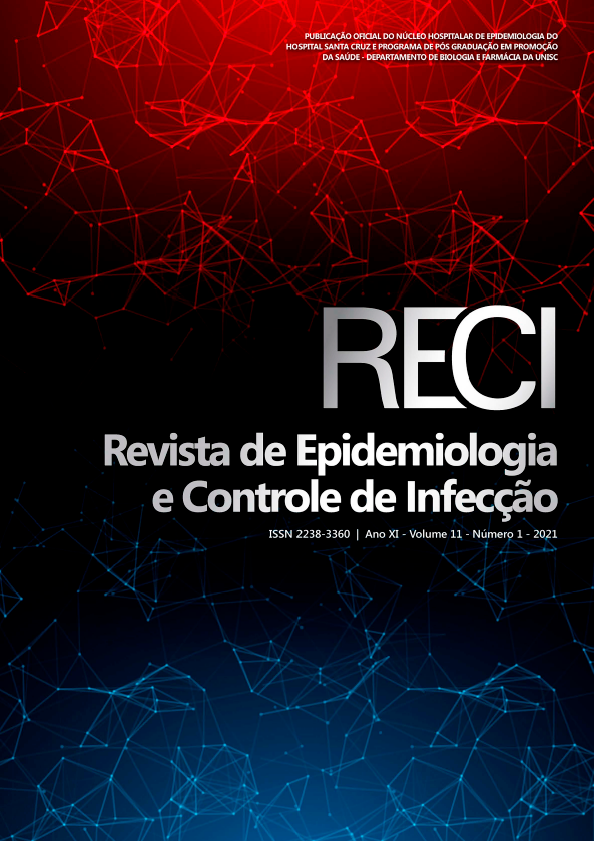Nutritional determinants as potential contributors to anemia in children and adolescents with malaria by P. vivax
DOI:
https://doi.org/10.17058/reci.v1i1.15133Palavras-chave:
Plasmodium vivax, Anemia, Nutritional Status, Food ConsumptionResumo
Background and Objective: Nutrition, in addition to its physiological function, plays an important role in the recovery of individuals with malaria, a disease that still represents a serious public health problem in the world. The objective of this article is to evaluate the frequency of food intake and the occurrence of anemia in children and adolescent with vivax malaria. Methods: A cross-sectional analytical study was carried out between 2014 and 2015 in the Marajo island. The hemoglobin level was measured by the colorimetric enzymatic reaction and a questionnaire of food intake frequency was used to assess the consumption of foods. Results: A total of 67 patients met the criteria for the inclusion in the study, of which 62.7% were children. There is a high consumption of ultra-processed foods in both age groups. Anemia occurred in 52.2% of patients, and in most of them, it was moderate. There was no significant association between gender, age range, parasitemia at admission with anemia, but a significant association was found between anemia and the ingestion of ultra-processed foods. Conclusion: The ingestion of ultra-processed foods contributes to anemia in children and adolescent with malaria.Downloads
Downloads
Publicado
Como Citar
Edição
Seção
Licença
Copyright (c) 2021 Bianca da Conceição Cabral

Este trabalho está licenciado sob uma licença Creative Commons Attribution 4.0 International License.
The author must state that the paper is original (has not been published previously), not infringing any copyright or other ownership right involving third parties. Once the paper is submitted, the Journal reserves the right to make normative changes, such as spelling and grammar, in order to maintain the language standard, but respecting the author’s style. The published papers become ownership of RECI, considering that all the opinions expressed by the authors are their responsibility. Because we are an open access journal, we allow free use of articles in educational and scientific applications provided the source is cited under the Creative Commons CC-BY license.


